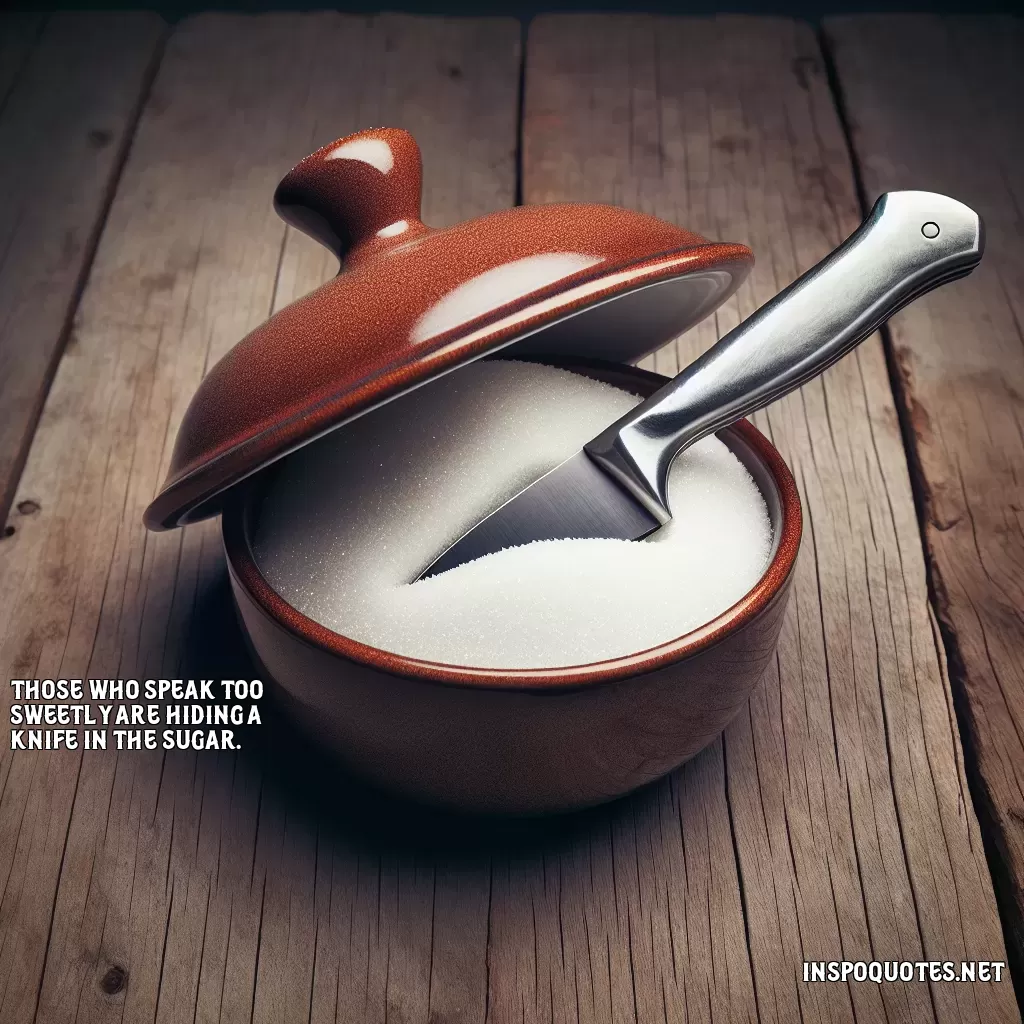
Those who speak too sweetly are hiding a knife in the sugar.
Author: Chinese Proverb
👁️ 14 views
The quote "Those who speak too sweetly are hiding a knife in the sugar" serves as a metaphor warning against individuals who may sound overly pleasant or charming but have potentially harmful intentions. It suggests that sweet words can be deceptive, masking an underlying threat or betrayal. In many cultures, language is not just a means of communication but a tool for persuasion and influence. People who are skilled with words can create a facade of sweetness and friendliness, leading others to trust them more easily. However, this quote reminds us that such honeyed language can sometimes be a strategy to lower one's guard, allowing ulterior motives to go unnoticed. The "knife in the sugar" represents the hidden danger beneath the surface of flattery and kindness. This metaphor highlights the dual nature of verbal communication. Just as sugar can be used to sweeten something unpleasant, sweet words can disguise harmful intentions. It's a caution to remain vigilant and critical of those who seem too good to be true, emphasizing the importance of discernment in our interactions with others. This saying encourages us to look beyond the surface and question whether the intention behind sweet talk is genuine or if it is masking a more self-serving agenda. In relationships, both personal and professional, this awareness helps to protect us from manipulation or deceit.
Quote By: Chinese Proverb
Chinese proverbs are traditional sayings that encapsulate wisdom, culture, and practical life lessons from China's rich history. Often derived from ancient texts, folklore, and philosophical teachings, these proverbs reflect Confucian, Taoist, and Buddhist values, guiding people in moral conduct and daily decision-making. Their concise and poetic nature has allowed them to endure through generations, making them an integral part of Chinese language and culture.
Bio added on: 2025-02-13 07:16:50